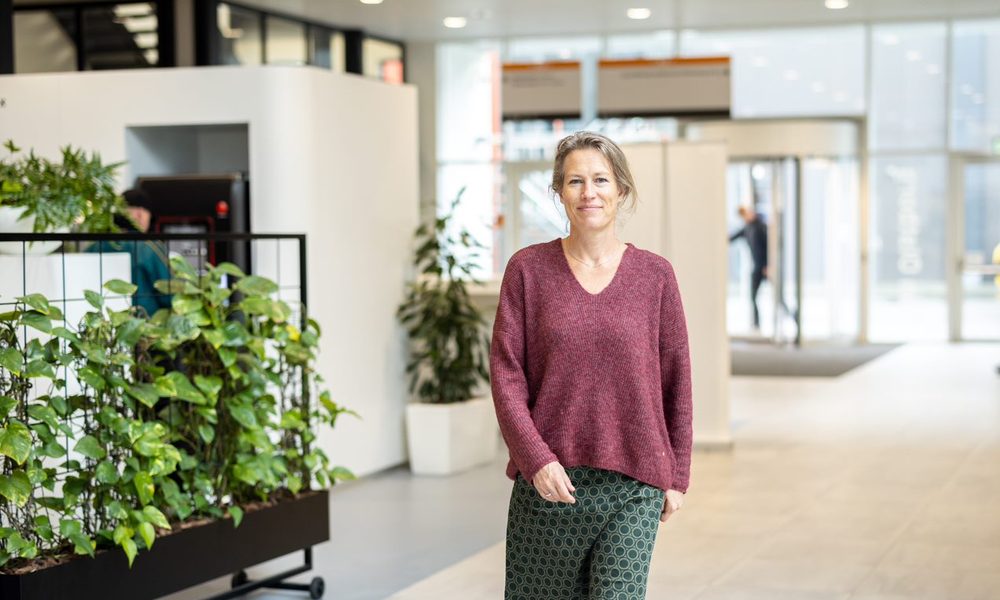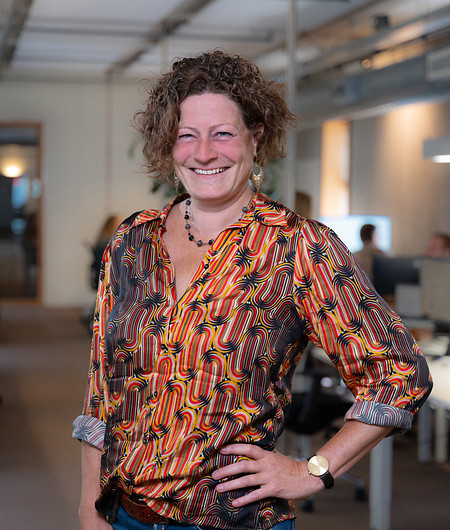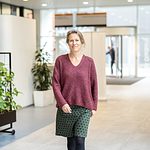Important role for students in breaking generational poverty in the Peat Colonies
- Research stories


Generational poverty in Drenthe's peat colonies is a large and complex issue. An effective approach to reduce this form of poverty in the area is still lacking. Together with the 42 partners of the Alliance of Strength, Hanze launched the Living Lab on Generational Poverty in February. Students have an important role to play within the Living Lab. ‘The fight against poverty has not delivered what it should have done in recent years.’
The fact that the focus of the Living Lab is on the peat colonies* is certainly no coincidence. It is an area where 14,000 families live in poverty and it is the largest rural area in the Netherlands with this poverty problem. A child who grows up in poverty is twice as likely to end up in poverty later on. ‘People in this area have been living in poverty for generations and therefore have low self-esteem,’ says Professor of the research group Youth, Education and Living Environment Annelies Kassenberg. ‘Parents say to their children: “We were born poor and we will die poor.” Because generational poverty is so persistent, we pay a lot of attention to the children. By offering children every opportunity, and broadening the world for them, we want to investigate whether the children can succeed in breaking the pattern.’
The Living Lab Generational Poverty stems from the Alliance of Strength. Within this alliance, 42 partners work together to break through the poverty problem in the Peat Colonies. Knowledge institutions such as Hanze and the University of Groningen, housing associations, municipalities, care and welfare institutions and experts by experience are represented within the Alliance of Strength. Kassenberg: ‘A year ago, together with the University of Groningen and CMO/STAMM, we co-wrote part of the programme plan of the Alliance of Strength. With this programme plan we try to make visible what we want to achieve and, above all, how. These are long-term goals over a period of twenty years. Within the Alliance of Strength many parties work on interventions to combat generational poverty. We believe that we should work cyclically on improvement, also because at the moment we don't know which interventions are effective and which are not. Research is therefore included in the programme plan and is a very important part of it. On the one hand it quantitatively monitors which interventions are made and what they yield. And on the other we also want more in-depth insight into why something works and for whom. We want to know much better how these interventions are experienced both by people living in poverty and by the professionals who carry out the interventions. It is very interesting for the professional practice to get answers to these small research questions and for our students they are exactly the right questions to do research on.’
Saskia Duursma is programme leader within the Alliance of Strength. About the importance of the Living Lab she says: ‘We have been looking for solutions to break through the issue of generational poverty for years. Research by the University of Groningen shows three things: we need to provide tailor-made solutions, stop everything that looks like a project and focus on the long term, and the third is that we don't really know what works and what doesn't. There is only one proven effective intervention and that is motivational interviewing. Apart from that, when it comes to poverty reduction, we use our gut feeling and our own experience. If we really want to take steps in the next twenty years to break generational poverty, we have to use a magnifying glass on everything we do and ask ourselves: is it effective? Do the people concerned feel that something is improving for them? With each intervention, the students will investigate whether it helps us in the right direction. In recent years, the fight against poverty has not delivered what it should have done. More and more people are falling into poverty. We need to have a clearer picture of what works and what doesn't. Rolling out the right approach is not possible without measuring effectiveness. Students play an important role in this. We can learn a lot from the people it concerns directly.’
In the coming semester, five students will be working at welfare organisation Tinten. They will map out which poverty interventions exist and turn them into a handy visual. This helps social workers and referrers in their daily practice. After the summer, the intention is that more students will start working within the Living Lab Generational Poverty. There is no shortage of research questions, says Duursma: ‘In addition to the research questions from Tinten, there are also research questions surrounding the Promising Talent programme in the short term. The aim of the programme is to guide people who do not yet have a job to find one or provide the next step in their development towards work. The programme focuses on basic skills in collaboration with the business community. We think this is very effective, but we don't know for sure. We want students to test interventions, which we suspect are promising, for effectiveness. In addition to Promising Talent, there are more projects that we think are helpful, such as Kansrijk Groningen and Kansen voor Kinderen. These are large programmes that focus on breaking through poverty, of which we are positive that they will work. We want to prove that these initiatives will help to get the people concerned out of poverty.’
Working in the Peat Colonies is sometimes difficult for professionals, because you have to deal with people who are suspicious. ‘They often don't care much for government and professionals, because they feel that these agencies are not there for them,’ says Kassenberg. ‘By building trust, we want to break through that. That takes time and is certainly not easy.’ Duursma adds: ‘Within the Alliance of Strength, we work a lot with experts by experience, people who have been in poverty themselves and have come out of it. They help us give direction to the programme.’ Kassenberg and Duursma think that students will be able to gain the trust of the people in the region more easily. ‘We hope that students will be less threatening to residents, because they are young and still learning. Perhaps it will be easier for us to get into people's homes and students will be able to get information that professionals are less likely to get,’ says Kassenberg.
When will the goal of the Living Lab Generational Poverty be achieved? Duursma: ‘For me, it will be successful when we know better what works and what doesn't in order to break generational poverty and that we do so by training the professional of the future.’ Kassenberg adds: ‘At universities of applied sciences, we have always said that professorships exist to serve the triangle of education, research and the professional practice. Hopefully, we will make a fine contribution to the research, gaining more insight into what works in the Peat Colonies. In addition, we offer a wonderful opportunity for our students to do research. The professional practice is waiting for this research, because they have many questions that they would like to have more insights into. The facets of research, education and the professional practice are all served within this Living Lab.’
After the summer, there will still be plenty of room for new students in this Living Lab,’ says Kassenberg. ‘We don't focus on students from one specific programme, the issues transcend schools. What qualities do you need to have as a student? Above all, you have to have compassion for the target group, be genuinely interested, have an inquisitive attitude and be curious.’
*The peat colonies in Drenthe are the communities that sprung up as a result of the 18th century peat industry which drew tens of thousands of workers from all over the Netherlands to the area.

Lector Jeugd & Leefomgeving

Would you like to know more about the research group Youth, Education and Living Environment?
Click hereHow satisfied are you with the information on this page?